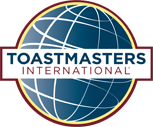
GENERAL EVALUATOR FUNCTION
The General Evaluator, or GE, should be seen as a teacher by example. The GE gives guidance to the speech Evaluators, leads the evaluation portion of the meeting, and provides constructive criticism of the meeting.
Chronology of the General Evaluator Role:
The day before the meeting, contact the Toastmaster to find out if speeches will come before table topics. If this is the case, contact the evaluators and make sure that they are prepared before the meeting starts.
The day of the meeting, be sure to arrive early, to ensure the Evaluatorsí presence, and note whether the meeting starts on time. Take notes on examples of good performance, as well as things that need improvement.
The most common mistakes made are:
- The meeting starts or finishes late
- Persons on the agenda do not make it to the meeting
- There is no formal introduction of the Topicmaster by the Toastmaster, and vice versa
- Toastmaster does not follow the written agenda, or forgets to call upon functionaries in the proper order
- The Toastmaster leaves the lectern with no one to take control of the meeting
- The Topicmaster forgets to call for a vote, or forgets to call upon the Timer and Lexicologist to determine who qualifies for best table topics speech
- The agenda has errors
- The Lexicologist rings the bell any time other than during table topics
- The timer does not operate the timing device properly
- Meeting attendants speak out of turn or disrupt the meeting (cell phones, pagers, watches beeping, etc.)
Common examples of positive performance are:
- Toastmaster starts on time and handles changes to the agenda smoothly.
- The agenda is well-prepared and followed
- Topicmaster provides challenging and fun questions, or creates an atmosphere consistent with the theme of the day.
- Minuteperson or other member fills in a challenging role at the last minute
- There is a full slate of speakers (three), on interesting or varied topics
- One of the functionaries handles a "problem" well (for example, the Toastmaster covers for the Topicmaster when he forgot to request the vote)
- Recognize "progress" made by an individual, or the club as a whole
Prior to the speeches, the GE is asked to lead the evaluation portion. Proceed to the lectern. If there are visitors at the meeting, explain your function with something like "The General Evaluator critiques all aspects of the meeting."
Ask the evaluators to each in turn take one minute to explain what they will be looking for in the speeches. Once that is completed, turn over control back to the Toastmaster and leave the lectern.
After the vote, for best speaker, the GE again takes control of the meeting. Ask each evaluator in turn to evaluate speeches, and give timing instructions. If there is plenty of time left in the meeting, use the traditional one minute, 1:30 and two minutes for the green, amber and red lights. If time is limited, reduce the evaluation times accordingly, allowing at least one minute for evaluations.
Note: if the evaluators wish to use the lectern, then shake their hand and be seated, returning to the lectern when they finish their report. Otherwise, remain standing at the lectern to ensure that the lectern remains "manned" at all times.
After speech evaluations are completed, ask for the vote for best evaluator. Then give your general report on the meeting. The report should be broad and comprehensive, and include positive criticism as well as areas to improve.
An example is:
"I now give my evaluation of the meeting. The meeting started a couple of minutes late, but that was because the Topicmaster was late to the meeting. The props you used today did an excellent job of setting the tone for the meeting. Thank you, Nancy, for filling in for John as evaluator. Mr. Toastmaster, donít forget to follow the agenda and call on the Jokemaster after the Invocation and Pledge. Good job shortening the break time so that the meeting was kept on time. Overall, a well-run meeting."
Now it is time to give out any applicable awards. Explain each award if there are visitors:
* The Spark Plug Award goes to the member who added the most enthusiasm or initially sparked the membership with his or her wit.
* The Whitewash Award goes to any evaluator who failed to provide constructive criticism (they only gave positive comments).
* The Flake Award goes to the member who has a functionary role and is a "no-show" or doesn't let the Toastmaster know.
* The Windsock Award goes to the member who speaks too far beyond their requested time.
* The Rusty Nail Award goes to the member who has forgotten some of the details needed to perform their functionary role.
* The Pinch Hitter Award goes to the member(s) who stepped in at the last minute to save the meeting by taking a funcationary role.
Finish your portion by returning control of the meeting back to the Toastmaster. Your final act in the meeting will be to award the best speech Evaluator.
Printer Friendly Version
